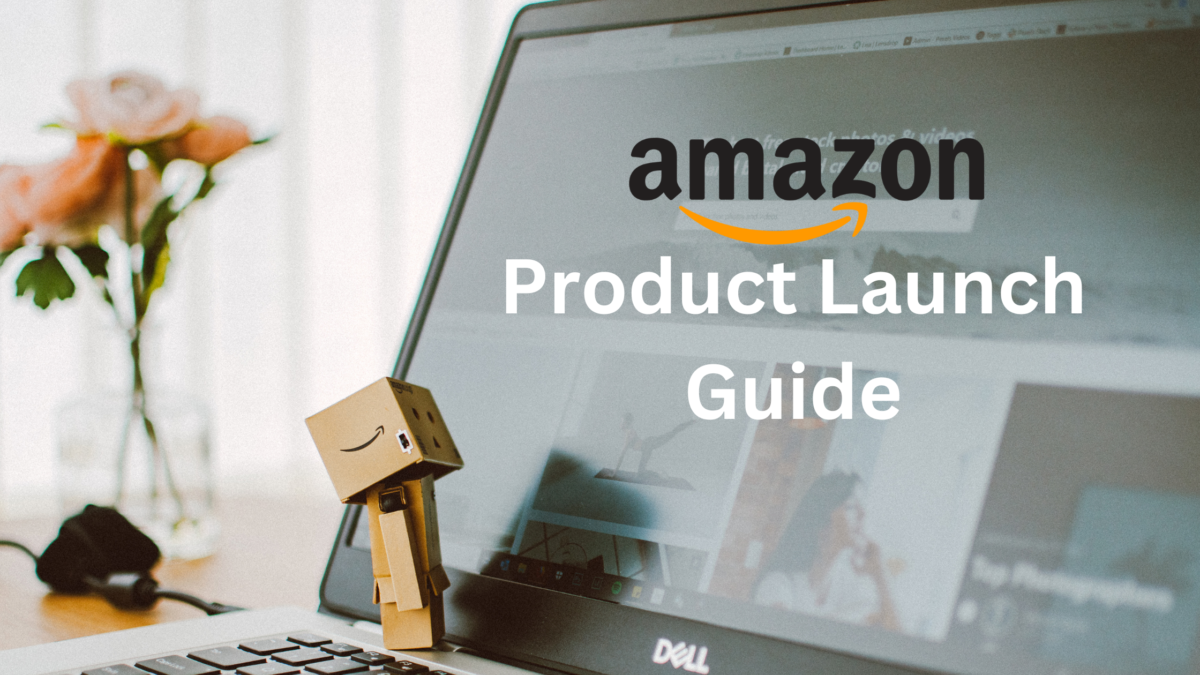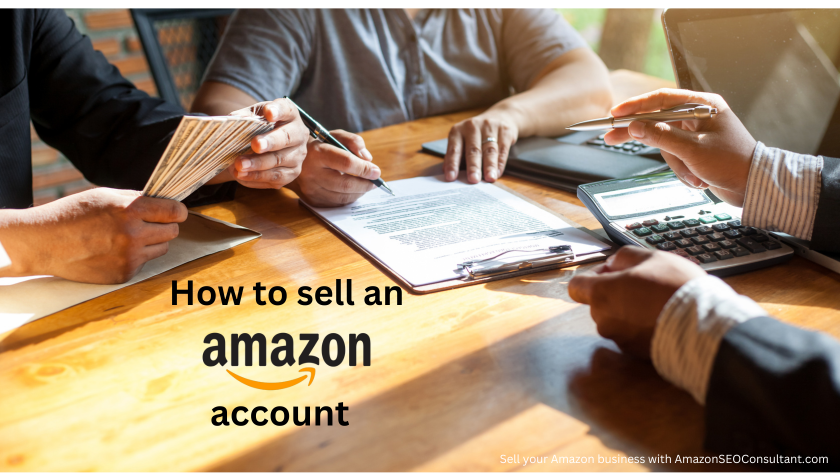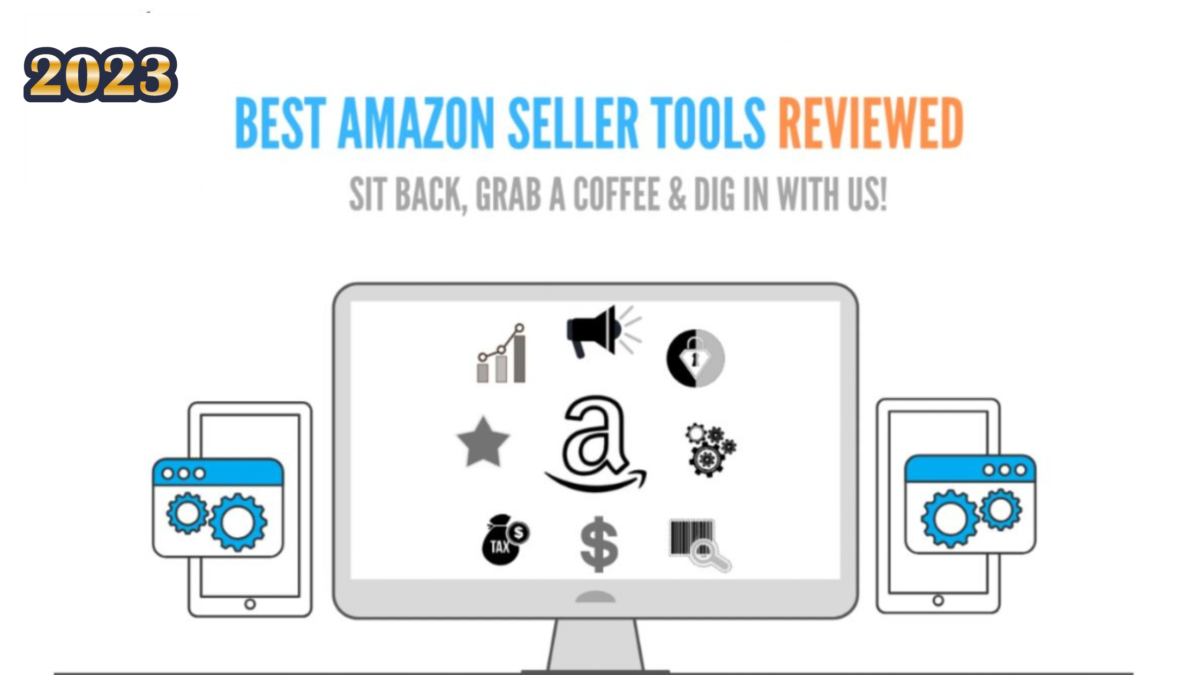As you know if you’ve been following our site for a while, we have been providing effective Amazon organic ranking services for our 100s of clients for years now.
Since most Amazon sellers are based in the US, most of our clients are too – but we’ve also had a lot of success with UK based sellers. Since Amazon UK organic ranking services are much less common than their US counterparts, I wanted to discuss this a bit today.
The UK is an interesting situation – while population and demand are lower than they are in the US, meaning a wildly successful product will likely never hit the same highs – competition is also much lower, making ranking easier, quicker and cheaper in many cases.
This means that if you’re planning to launch a product into a competitive niche, the UK can be used as a springboard – rank there, and use the profits achieved to push your organic rank in the US. This can lead to both quicker sales growth and a higher ceiling once achieved – and since both countries speak English, very little effort such as changes to your imagery or listings are required.
But first, if you’re new to this whole idea, let’s explain the basics:
Why are Organic Rankings so Important?
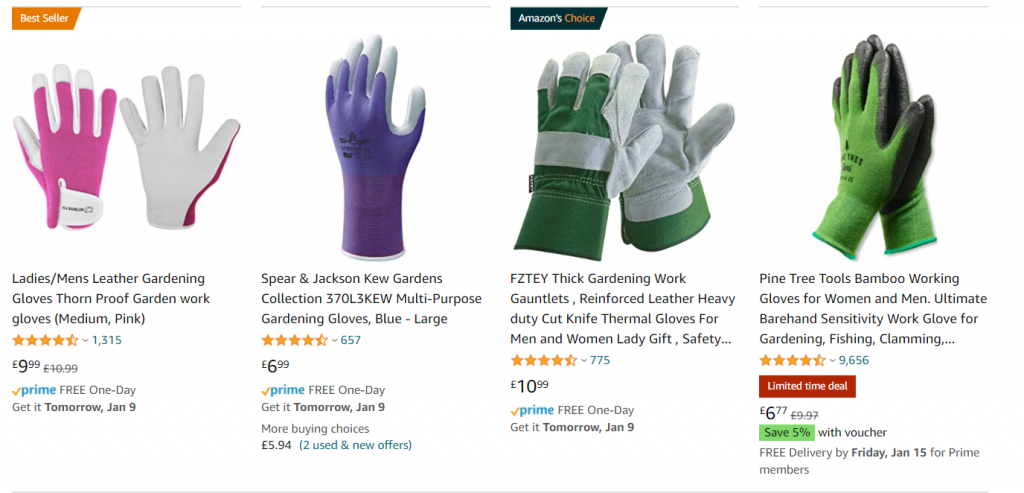
From blog posts and sponsored ads to Google PPC and real life marketing, there are tons of ways to promote your Amazon product. However, the simple fact is these things have an ongoing cost associated with them and, in the case of PPC, if you stop giving up this margin, sales will dry up immediately.
Organic ranking may cost more up front and take a bit more work, but once achieved it leads to long term sales growth with little to no extra cost. This makes it by far the most reliable and efficient way to promote a product on Amazon UK.
Put simply – Amazon doesn’t want to lose any potential customers – they want to covert every single searcher into a purchase, if possible. In an attempt to do this, their algorithm will provide each and every search with the products they think are most relevant and likely to turn into a sale.
This means that if you regularly win sales under a specific keyword, your product will show up higher organically for this keyword. This is great for established sellers who have achieved this, as you can sit at the top of the results picking up a lot of sales with little to no effort.
It’s a major obstacle if you’re launching a new product with zero sales history or reviews, however – you may find you’re stuck on page 6 of the search results with little to no sales, as quite simply, most searchers are purchasing something from page 1 and never even seeing what you have to offer.
To learn more about how exactly this works and why the Amazon search results are arranged the way they are, take a look at our in depth guide on the A9 algorithm (which is now annoyingly called A10 for some reason).
Completing Keyword Research for Amazon UK
The first step of organically ranking on Amazon UK is of course, deciding which keywords to target. Your product needs to be highly relevant to the keywords you choose, otherwise there is no point. For example if your product is a gardening glove that isn’t waterproof, and you try to rank it for “waterproof gardening gloves” you aren’t going to get far. You may be able to rank to a high position, and you may even win some sales from it, but this will lead to bad reviews, returns, and people selecting other products, all of which will serve to make your rank slide down again with time.
As a result, you need to prioritize targeting the right keywords before doing anything else. The best way to do this is to put yourself inside the mindset of somebody typing that keyword, and ask if your product would be suitable for their needs or not? The more relevant the keyword is to the product, the better results you’ll have in the long term.
There are tools like Helium10 that are designed to help with this. To learn more, check out our Helium10 review and our in depth guide to keyword research. Once you have a list of relevant keywords broken down by search volume and competition, it’s time to put this list into action.
Listing Optimization for Amazon UK
While sales are the most important thing when it comes to Amazon organic rankings in the long term, Amazon needs to deem your product relevant to a keyword to make it show up in the first place at all – which means in the early stages, on page optimization is just as important.
You need to include as many relevant keywords as possible in order to:
- Give Amazon a lot of information about what the product is about
- Give you a headstart by giving you a chance to rank for as many related keywords as possible
- Give you options for organic ranking campaigns and other strategies
Of course, this doesn’t mean you should just jam every keyword into one big, gibberish paragraph. Copywriting is just as important here and you need to describe the product in a clear and appealing way. Striking the right balance between using a wide range of appropriate keywords and still using a human and readable prose is the priority here – too far in either direction and you are kneecapping your future growth prospects.
Title

Your title is both the section of your listing that Amazon prioritizes, and the first part that any potential customer will come across. As a result, it’s arguably the most important part of the entire listing. To optimize it effectively, consider the following tips:
- Include the priority keywords in the title (most relevant and most searched)
- Build out the rest of the title with useful information the searcher may be looking for (size, colour, amount of servings, etc)
- Remember to include your brand name to help build recognition
- Build out the remaining space with marketing techniques and copywriting
Bullet Points
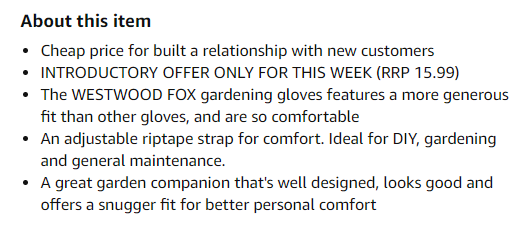
The bullet points of your Amazon listing are your opportunity to list the details, features, benefits and specifications of your product in a neat and easy to read format.
Usually once somebody has been attracted by your title to click on your listings, they will have some further questions, whether that’s about compatibility or sizes etc.
Effectively optimized bullet points will answer all of these questions while also adding further keywords for ranking benefits as well as using copywriting techniques to further grab the reader’s attention.
When optimizing your bullet points, try to fit in the following strategies:
- Don’t just list all the benefits of your product, but also the benefits of those benefits. So instead of “waterproof gardening gloves” or “high power surround sound”, say “waterproof gardening gloves for added comfort on those winter days” or “high power surround sound allows you to bring the party wherever you go!”. This helps a potential customer to imaging themselves using the product and think about how it would benefit them which can help with conversions.
- Use some brand storytelling to improve customer loyalty as well as related strategies such as mentioning that you offer refunds if not satisfied etc
- Angle your benefits around what your competitors offer. If you have a benefit that not many other sellers can offer, put that at the forefront of your listing and use terms like “unlike other products….”
Product Description

Your product description only displays if you don’t have enhanced brand content active, so check our full guide on that topic if you do. However, even if you do, the product description still indexes, so it’s worth filling this in regardless. In regards to keyword ranking, product description is treated by Amazon as very low priority compared to the title and bullet points. This means this isn’t a good place to put any major/priority keywords. However, if you have already optimized the above sections well and have a few keyword left over that you were unable to fit, then this is a good way to ensure they are still present in the listing.
First things first – the product description is a boring bunch of text and the vast majority of people don’t bother reading it.
With that said, the people who do scroll down and take note of it are usually those who are almost convinced they want your product but are unsure of one more piece of information and are scrolling down to learn more.
As a result, this is a good place to go really granular on technical specifications, measurements, details and anything else that hasn’t already been mentioned.
This should include beefing out the benefits and USPs with further benefits, adding some brand and product storytelling, and being very specific in regards to the persona you’re targeting.
If done right, this product description will increase conversions which will indirectly benefit your rank.
How to Rank Organically in Amazon UK
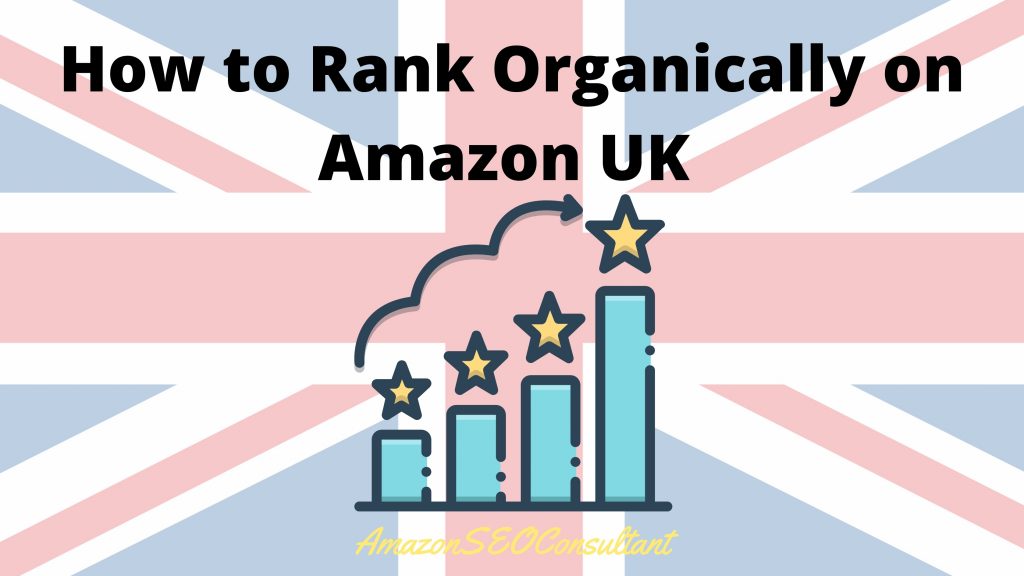
By following the tips above, you can get a well converting listing that is also well optimized. The other crucial factor is of course having a great product. If your product is bad quality or the same as your competitors then you’re going to struggle to grow because quite simply, even when you’re in a high rank there is no reason for anybody to choose you over other options.
But if you have a great quality, unique product, that generates good reviews and provides good value – and you also have optimized your listing well in line with the above tips, you are now in a position of power.
More than likely, you will now be organically ranked in some of the main keywords you added to your listing. However, considering it’s a new product, with very few sales, you more than likely have quite a low rank.
Still – what’s important is that people can find you under the keyword. Now, all you need to do is get some people to search that keyword and buy your product.
You can ask friends and family to do it, and refund them. You can offer it free to friends on social media. All that matters is that a bunch of genuine Amazon customers search that keyword, and choose your product over the other results there. This will result in your product moving up the results. How many sales are needed will depend on how competitive the keyword is and how many other products are trying to rank for it, but generate enough sales and you will get ranked to first place.
This will be transformative in terms of sales – if the keyword is searched 10,000 times per month and you were previously on page 6, you were probably being seen by a few dozen of those searchers or even less. At the top of page 1, you will be seen by all of them.
In this situation, as long as your product is good quality, reviews are positive, and listing is attractive – massive sales growth is guaranteed.
The only other factor to consider is review count – if you’re in a keyword where the highly ranked competitors have 3,000 reviews, and you have 15, then you may lose your rank slowly as people continue to choose the other options. In this situation, you can rank for a low competition keyword where the competition is less harsh, and use the sales won from that to build up your reviews gradually. As you get more and more positive reviews, you’ll more easily be able to compete in the larger keywords.
It’s important to use people that aren’t too close to you – if Amazon recognises that it’s a family member or somebody related to you then they will reduce the ranking effect of their purchases. However, more distant family and friends will be no issue at all.
The difficulty comes when the sales required to rank for your big ticket keywords are too high for you to achieve with your own personal network.
This is when we come in – we maintain a network of Amazon buyers in the UK and US and are able to generate hundreds of sales across granularly planned time periods to boost your rank to where it needs to be in virtually any keyword.
To learn more about our organic ranking campaigns take a look at the linked page or contact us now to discuss options!
